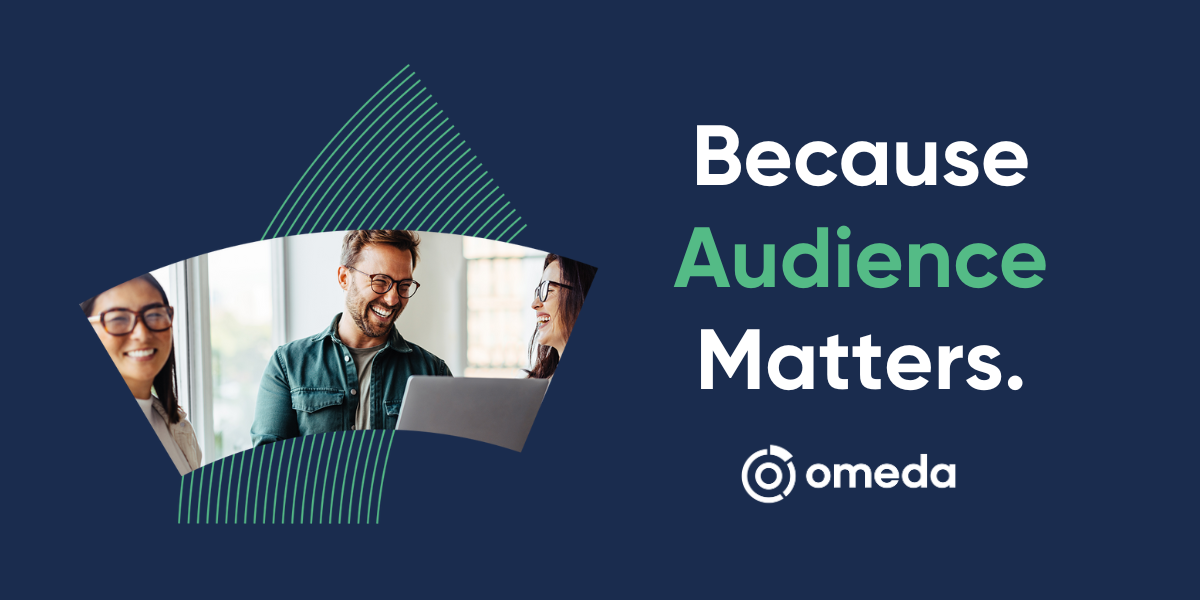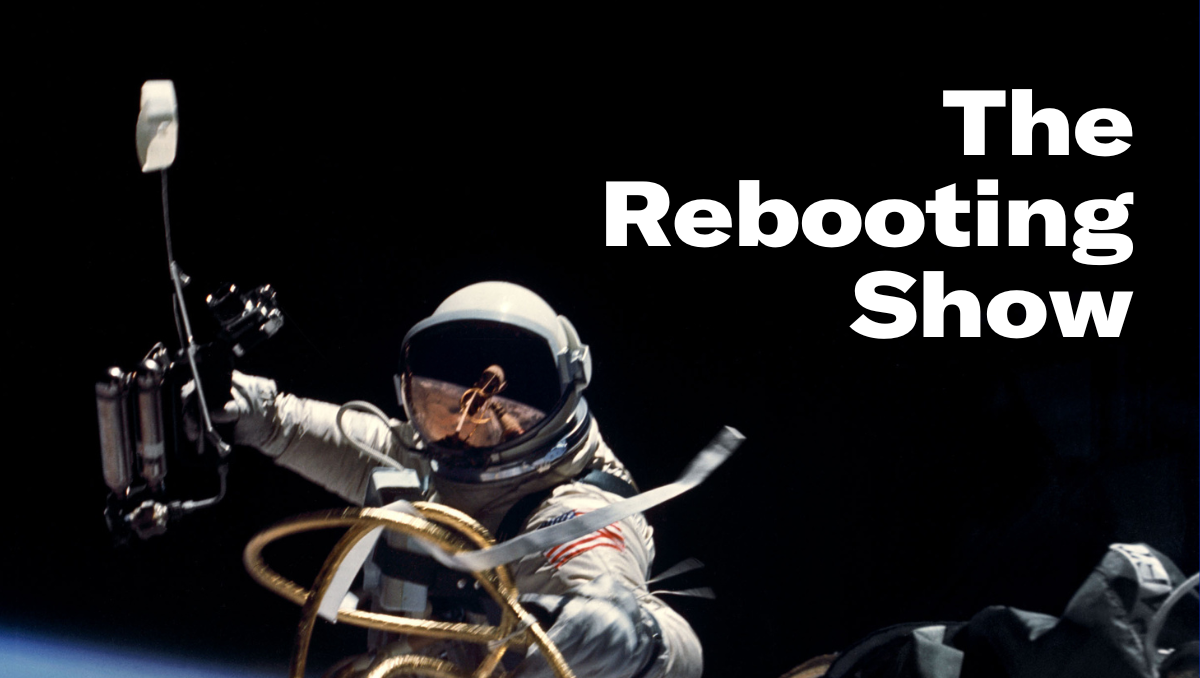Twilight of the hegemon
Maybe those in charge don't know what they're doing

Reminder: Check out The Rebooting's recent research reports:
- The State of Publisher Ad Revenue, done in partnership with Permutive, surveyed 99 publisher revenue leaders to unpack the state of their ad businesses going into the back half of the year.
- The State of Product at Publishers, done in partnership with WordPress VIP, surveyed 52 product leaders at publishers to understand what they’re prioritizing as they shift their strategies to be audience-focused.
Today, I wrote about how the five-year quest to eliminate the third-party cookie is yet another dent in the reputation of institutions. First, a message from Omeda.

Unlock the value of your audience

Are disjointed workflows and siloed data keeping you from reaching your audience?
Omeda is here to help. We take in audience data from every channel — from email and events to website, print and ads — and unify it in one place, so you can segment, personalize and monetize your audience with ease.
Spend less time managing your audience and more time engaging them with Omeda.
Institutional decline
This isn’t a great time for institutions. The Democratic Party has completely bungled an obviously aging president. The Secret Service can’t answer basic questions about the attempted assassination of a former president and current presidential candidate. The current president hasn’t been seen in several days. No Kamala dance meme will erase this shambolic state of affairs.
Add to the mix Google, which is the preeminent institution of the open web, has scrapped a five-year-long effort to end the strangely pivotal role of the third-party cookie. Over this time, Google delayed its deadline for deprecation in Chrome several times. It ran through three different possible alternatives, with all being judged fatally flawed. The Privacy Sandbox had enough problems that the IAB, which relies on Google for a big chunk of its funding, concluded it “falls well short” of a workable solution. European regulators panned the fix.
Now, after five years of uncertainty in the future path for digital advertising, Google will instead punt to the ultimate digital media hack: another pop-up. It will kick the decision to internet users to “make an informed choice” about web tracking they absolutely do not understand and sensibly have no interest in parsing.. Five years of testing, arcane debates and three dudes and a woman on a stool conference panels have all led to a 369-word vague blog post about “an updated approach that elevates consumer choice.” This is Pontius Pilate asking for the wash basin
Behind the backlash against institutions is the belief that they aren’t competent. With great power, etc. And dating back to the Iraq War, governing institutions have proven themselves to often be bungling. Google took on the role of governor of the internet thanks to amassing massive power and a nearly $2.3 trillion market capitalization with its chokehold on distribution and monetization. With all those resources and five years it has arrived to the solution of a pop-up.
One of the upsides of being a reporter is you start to understand very early that the organizations running things aren’t as impressive as the image they project. Much of the world is held together by duct tape and run by organizations that are dysfunctional in their own ways, filled with a weird mix of the impressive and plenty of careerist mediocrities.
For most in the digital media ecosystem, Google isn’t the competition, it’s the environment. That kind of dominant role, like the U.S. in the post-World War II world, comes with some basic obligations. Google will obviously advantage itself as a hegemonic power. That’s why it can ignore transparency that marketers and agencies demand from other ad sellers. It can operate on all sides of the digital media ad ecosystem despite the obvious conflicts. Otherwise, what’s the point of the headaches of hegemony?
The history of hegemonic powers shows that they never last. They tend to grow lax and overly reliant on rent seeking, ultimately overwhelmed by the complexity of their dominions. They tend to fall back on their control of various power centers, take short term moves like currency debasement, dumb wars and excessive taxes, eroding the begrudging consent of their subjects.
Google is at that point. On top of this fiasco, it is presiding over chaos in the SERP and the embarrassing rollout of AI Overviews that it has been quietly reeling in. Moving on from the cookie was a move largely forced on it – nobody who’s winning the game in a blowout wants to change the rules – as Apple identified “privacy” as a weakness in the ad-driven models of Google and Meta.
Never mind if that’s actually improved privacy. This has always struck me as more about jockeying for power rather than mitigating some real harm. Most people moved on quickly from the exposure of the NSA spying on U.S. citizens. But yes, retargeting ads are annoying.
This “updated approach” is simply a messier path to the same conclusion. Google wasn’t forced to change course because of advertisers, publishers or users. The greatest pressure it faces is from regulators. In its terse announcement, it noted specifically it would work first with regulators and then “engage with the industry as we roll this out.”
Given the choice, people tend to opt out of ad targeting. The decades-long effort to rebrand this as “personalization” was always ludicrous and only believed by people in ad tech. And this way, Google will end up killing the cookie without holding responsibility for doing it.
The ideal outcome would be preferences set at the browser level, but naturally that is also the most unlikely outcome. Instead, the open web could be left with yet another UX horror show of endless consent pop-ups. Now, Americans will no longer need to go to Europe for the European Internet; it will come to you. The idea of “informed choice” in these inscrutable mechanisms is a farce. The digital ad world’s complexity will end up eating itself. Each patchwork “solution” just adds more complexity, resulting in something that resembles the tangled electrical lines of Bangkok.
I think this will mark the high point of the stranglehold Google has on the open web. It was always a mostly benign hegemon, but this isn’t the same zany Google that out-executed all competitors with the tailwind of its dominant position.

Unparalleled audience connections start here
In the quest for audience engagement, strategic ad placement is crucial. Onyx harnesses predictive technology to pinpoint where ads will thrive, transforming casual browsers into engaged viewers. Embrace the power of smart placement with Onyx for unparalleled audience connection. Learn more.

At the Media Product Forum earlier this month, I spoke with Gannett head of product Renn Turiano, Hearst Newspapers chief commercial officer Bridget Williams and Millie Tran, chief digital content officer at the Council on Foreign Relations. The conversation revolved around the shifting product priorities at publishers at a time when the weight of most publishing businesses is shifting from catering to the whims of platforms to a more independent path. That requires a change in focus to satisfy user needs, as well as the need to identify and serve various audience segments. We spoke about how all three organizations are tackling this. Thanks to WordPress VIP, which partnered with The Rebooting on the Media Product Forum.
Listen on Apple | Spotify | other podcast platforms
Thanks for reading. Send me a note with feedback by hitting reply.


